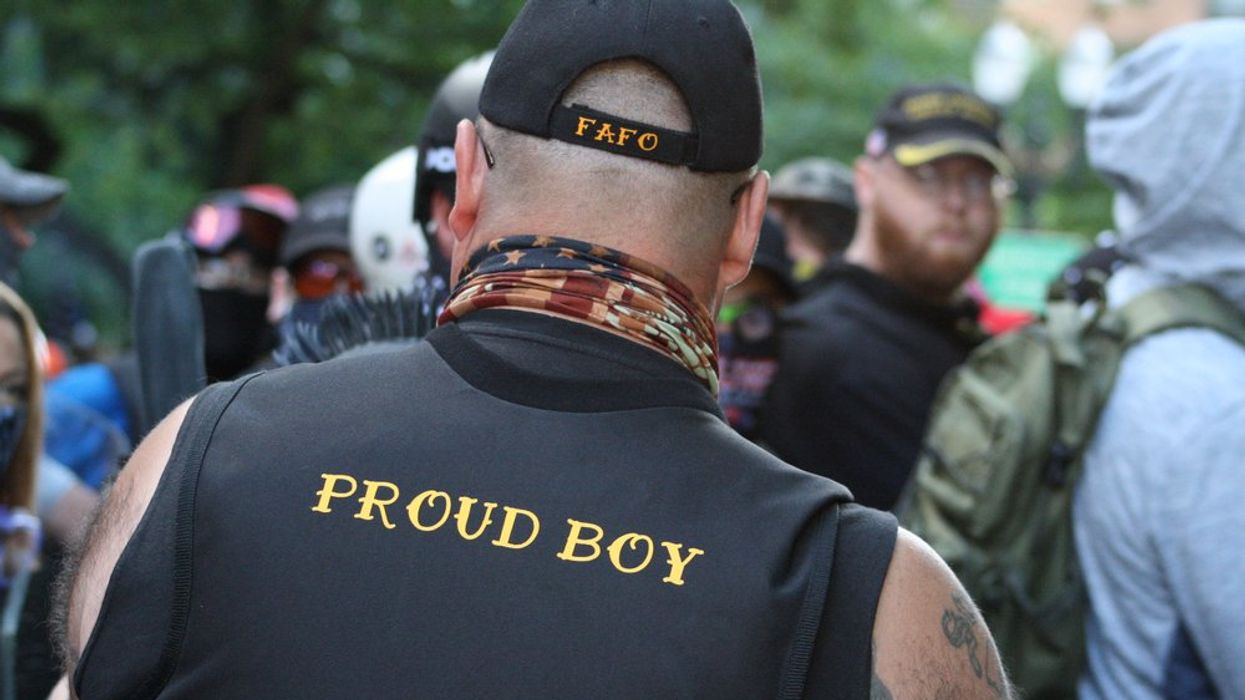Though white supremacist ideology is exclusionary by nature, a small number of Latinos have risen in the ranks of far-right organizations and become spokespersons for extremist ideologies.
In a recent conversation for the Brennan Center for Justice, former FBI agent Michael German shared his thoughts on what motivates Latinos to join white supremacist organizations, and why they've been included.
As an undercover agent, German infiltrated white supremacist spaces in the early 1990s. At that time, he noted that Latinos, among other ethnic and racial minorities, were already present in those groups.
"People assume that a white supremacist or far-right ideology is extremely rigid and exclusionary. In many ways it is, but it also has to fit into a very multicultural society," German said.
According to the former agent, in order to expand, these groups understand that they need to be more "inclusive" and recruit those who might not be considered "racially pure" by their standards.
As German explained, race is an ever-evolving social construct, and who is considered "white" changes over time. For Latinos, if they can trace their ancestry back to Spain, white supremacists may consider them white and allow them to participate.
"As the Latino population in the United States grows, the distribution of power will change, and who will be considered white will expand," he also told Emma Vigeland of The Majority Report.
White supremacist groups like the Proud Boys have also made great efforts to manicure their public image, calling themselves "western chauvinists" and pointing to members who may not be considered white by the public, including their ex-leader, Cuban-American Enrique Tarrio.
"The attitude is, if we ever get to the race war, we’ll be more discerning about who we let in, but casting a wider net can be helpful now," German said.
Historically, people of color have been attracted to the power and protection that they believe will be provided by white supremacist groups. But the former FBI agent observed that the main hook for minorities in the groups he infiltrated was committing violence.
"A lot of them were just criminals," he told Vigeland. "If try to join some local social club, and tell them about your love of bomb making, you're probably not going to be very popular. But if you find this group, you'll be very popular."
A large facilitator of white supremacist groups is found in law enforcement. As German previously reported, the involvement of police in hate groups is foundational to the United States.
"We have to recognize how law enforcement’s reluctance to properly respond to white supremacist violence because of its own affinity for white supremacy remains a problem," he said.

















































